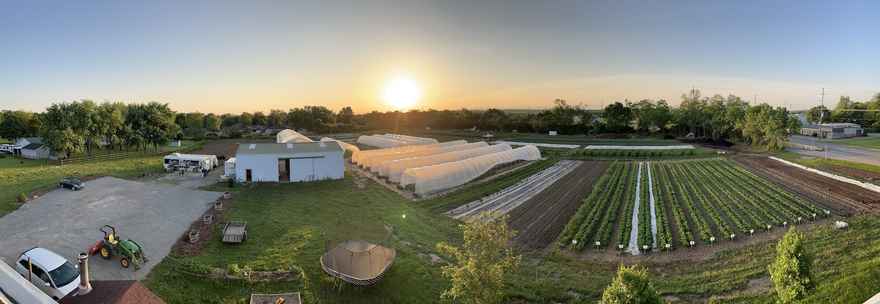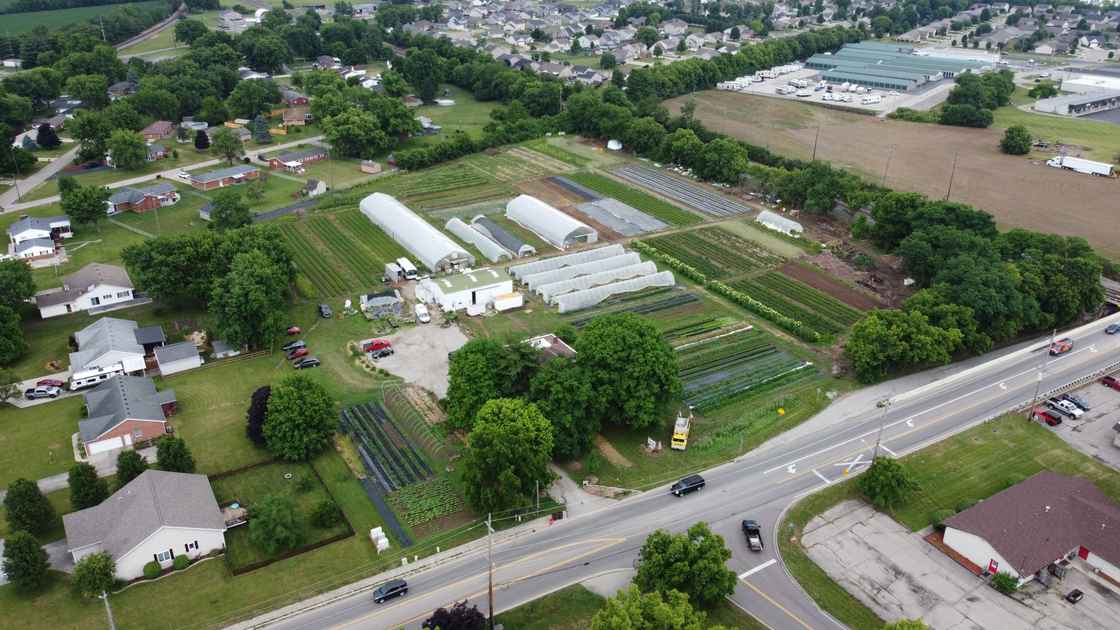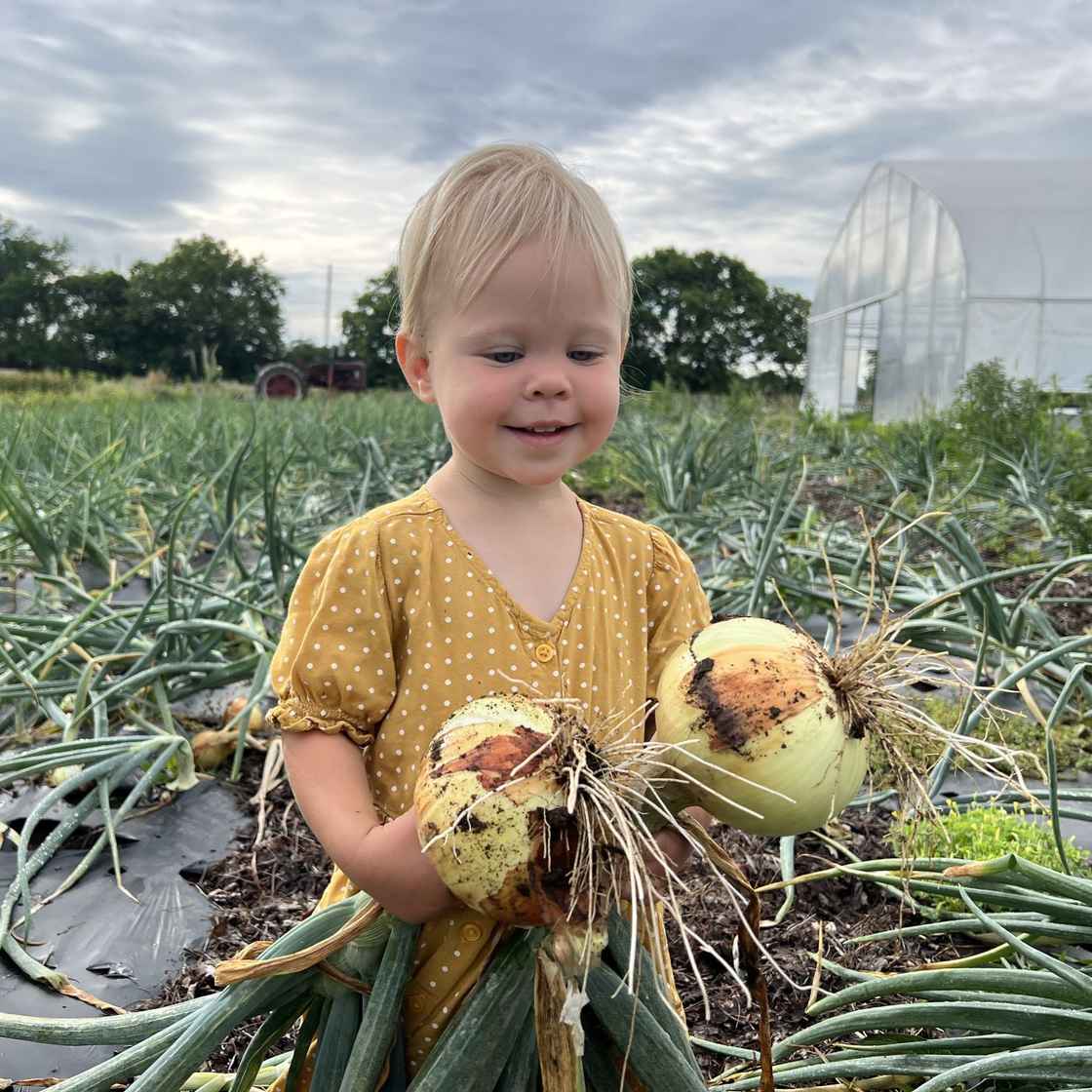Why We Farm (+ 3 Tips to Start Your Own!)

As a teen, when I said I wanted to farm instead of go to college…a lot of people thought I was making a ridiculous career choice.
After all, most people focus on the cons! It’s challenging, you’re stuck with a lot of physical work, and you’re dealing with a lot of different variables you can’t control (like the weather!) Then there’s this stereotype out there that farmers are all poor and struggling to run a profitable business…
On top of that, my parents were not entrepreneurs or farmers. All we had while I was growing up was a small garden. I barely knew how to grow crops, and I didn’t know the first thing about running a business.
Why I chose farming anyway
Farming clicked with my personality in a way nothing else did. While my friends were focused on school or part-time jobs, I was building a business from the ground up. I enjoyed the growing process, but I was also highly invested in the idea of running and managing my own operation instead of working for someone else.
I learned far more working out in the fields than sitting in a classroom. When you’re farming, there are ALWAYS new things to learn and ways to improve upon your current system. It never gets boring!
At the age of 22, I was running a profitable $500,000/year farm (gross revenue) with several full-time employees, as well as seasonal hires. Although we only owned 8 acres, we expanded by renting additional farmland. By 2013, we were growing about 15 acres of vegetables!
Transitioning to a family farm
I met my wife while interning at a farm (no surprise there!) and we started over from scratch, building our Farm on Central on several shared values.

A love for community
Community is one of the most important things for both my wife and I. So much so that we spent 3 years looking for the perfect property…one with the space and soil for a farm, but with close proximity to people. That’s how we ended up on an urban farm in the town of Carlisle instead of isolated way out in the country.
A dedication to family
We love involving our children in the daily workings of the farm, which teaches them valuable lessons in persistence, diligence, and ingenuity. They also gain experience interacting with customers and witnessing firsthand how we manage our business—a learning opportunity we find essential. Although there are days when they might wish for a life away from the farm, they certainly appreciate the diverse experiences it offers and the unique opportunities it provides.
An emphasis on spending time outdoors
My wife and I both have a strong work ethic and believe in spending time outdoors as much as possible. Although we have lots of people on our team, we enjoy being heavily involved in running the farm ourselves, instead of leaving it to our employees. We also feel that physical labor is highly rewarding - that coming in at the end of a day tired and ready for bed is honest labor.
A passion for fresh food for our family and the community
There’s nothing like eating food that you’ve grown yourself. We believe that everyone should have access to freshly-grown, organic food. We’re in it not just to farm, but for the whole farm-to-kitchen process.
3 tips for starting your own farm
Everybody’s story is different, and our experiences won’t always be applicable for you. But if you’re just starting your farm business, take these three pieces of advice to heart:
#1 - Be a marketer first, a business person second, and a farmer third.
One reason why so many farms fail is because the owners put a lot of money into growing crops…then don’t know how to sell them efficiently and profitably. My mentor taught me to start from the other end, and become a good marketer & businessman before becoming a good farmer. Hands-down, it’s thanks to that mentality that we are so successful today.
#2 - Don’t be put down by limited space.
We’re a small farm, only about 8 acres surrounded by train tracks, houses, and a road. There’s no room for expansion. But we do a lot with those few acres! In fact, we know a lot of farmers who have a much smaller space and make more than we do. Size doesn’t matter nearly as much as how you utilize the space you have.
#3 - Don’t give up too soon.
Farming IS profitable, but it usually takes a long time to get there. On average, I’d say it takes about 5 years for a farm to become profitable. In other words, those first few years are hard. If you’re just getting started, don’t give up too soon! We have tons of online resources to help you build a successful business here at Growing Farmers.
Get more farm & business tips in your inbox every Friday!
(Plus get all the details when new courses or events are out.)



0 comments
Leave a comment
Please log in or register to post a comment